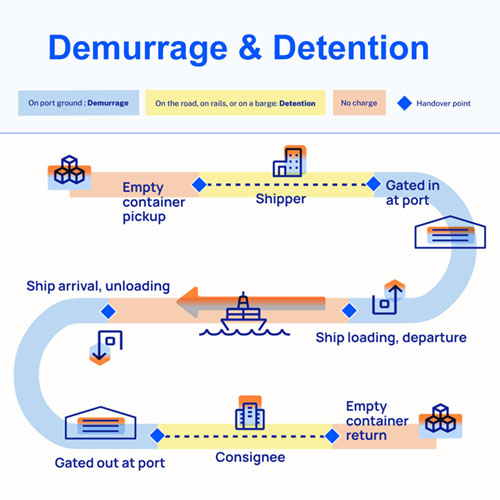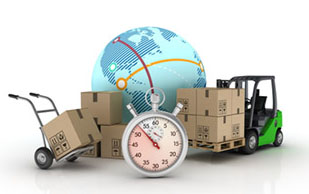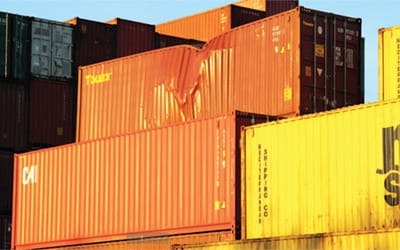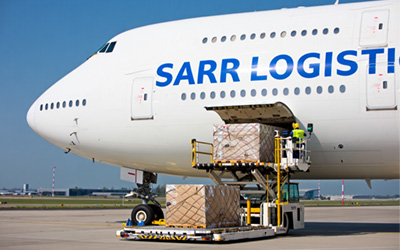Avoiding Demurrage & Detention Charges
Demurrage charges are a significant concern for companies involved in international trade and logistics. Understanding these charges and knowing how to avoid them is crucial for maintaining smooth operations and preventing financial losses.
Understanding the Concept of Demurrage
Demurrage charges have a long history dating back to the early days of maritime trade. Originally, demurrage referred to the compensation paid by a party for the delay in loading or unloading cargo beyond the agreed-upon time. In modern terms, demurrage encompasses any charges incurred due to delays in the transportation or handling of goods. Demurrage charges are put in place to incentivize importers to move goods through and pick up goods from the port sooner, and exporters to not bring goods to the port too early.

Causes of Demurrage Charges
Several factors can contribute to demurrage charges, including delayed loading or unloading at ports, inefficient logistics management, documentation errors, and customs clearance issues. These delays can result in additional costs for companies and disrupt supply chain operations.
Impact of Charges
The impact of demurrage charges extends beyond financial implications. Operational disruptions caused by delays can lead to missed deadlines, damaged relationships with customers, and reputational damage for businesses. It’s essential for companies to recognize the full extent of these consequences and take proactive measures to avoid them.
Strategies for Avoiding Charges
To avoid demurrage charges, companies must implement effective planning and coordination strategies, streamline logistics processes, maintain clear communication with stakeholders, and leverage technology solutions such as logistics software and tracking systems. Ultimately use a reputable logistics company to handle the paperwork as they will have systems in place to be proactive in think ahead saving your company money and your reputation in the long term.
Best Practices in Demurrage Avoidance
 Setting realistic timelines, conducting regular reviews and audits of logistics processes, establishing contingency plans, and investing in training and development are among the best practices for demurrage avoidance. By following these guidelines, companies can minimize the risk of incurring demurrage charges. Also understanding shipping contracts, understanding terms in commercial trade contracts “Incoterms”, pre clearing customs, reliability of land couriers and always have a back up plan.
Setting realistic timelines, conducting regular reviews and audits of logistics processes, establishing contingency plans, and investing in training and development are among the best practices for demurrage avoidance. By following these guidelines, companies can minimize the risk of incurring demurrage charges. Also understanding shipping contracts, understanding terms in commercial trade contracts “Incoterms”, pre clearing customs, reliability of land couriers and always have a back up plan.
Regulatory Considerations
Companies must also consider international regulations governing demurrage charges, as well as legal frameworks and contracts that may impact their operations. Compliance with these regulations is essential for avoiding legal issues and ensuring smooth logistics operations.
Future Trends and Innovations
 Looking ahead, automation in logistics operations, blockchain technology in supply chain management, and predictive analytics for demurrage prediction are among the future trends and innovations that could help companies mitigate the risk of demurrage charges and improve overall efficiency. Future Ai systems for tracking will reduce your demurrage charges. When you are use a reputable freight forwarder who has tracking software they will have your goods booked in and out with in the allotted time line with proactive thinking and Ai these charges are avoidable.
Looking ahead, automation in logistics operations, blockchain technology in supply chain management, and predictive analytics for demurrage prediction are among the future trends and innovations that could help companies mitigate the risk of demurrage charges and improve overall efficiency. Future Ai systems for tracking will reduce your demurrage charges. When you are use a reputable freight forwarder who has tracking software they will have your goods booked in and out with in the allotted time line with proactive thinking and Ai these charges are avoidable.
7 Tips to Reduce Demurrage & Detention Charges
- Negotiate on contractual terms and conditions.
- Carefully plan and track your containers.
- Always have a backup plan.
- Understand local shipping practices.
- Choose a reliable forwarder.
- Invest in Supply Chain Visibility.
- Implement the Right Technology.
Conclusion
In conclusion, demurrage charges pose a significant risk to companies involved in international trade and logistics. By understanding the causes and impacts of demurrage charges and implementing proactive strategies for avoidance, businesses can minimize financial losses, damage to there reputation and maintain smooth operations. Understand the difference between demurrage and detention is vital to your operation it could be the difference between a year of financial success or a year of losing money and customers because you lost time on the docks.
FAQs
 Q: What is a demurrage charge UK?
Q: What is a demurrage charge UK?
A: In the UK, a demurrage charge refers to a fee imposed on cargo that exceeds the allotted time for loading or unloading at a port or terminal. This charge serves as compensation for the use of port facilities beyond the agreed-upon timeframe.
Q: How long does it take before demurrage charges are applied?
A: Demurrage will only be applied after a set number of free days have elapsed. Each port facility has its own standards for the number of free days that are allocated and this figure is negotiable on a contractual basis. Generally, it is anywhere between 3 and 7 days.
Q: Who pays demurrage costs?
A: Demurrage costs are typically paid by the party responsible for the delay in loading or unloading cargo. In most cases, it is the importer or exporter who bears these charges, although contractual agreements may vary, and sometimes the responsibility falls on the carrier or other parties involved in the logistics chain.
Q: Who is liable to pay demurrage charges?
A: The liability to pay demurrage charges usually falls upon the party responsible for the delay in loading or unloading cargo at a port or terminal. In many cases, this responsibility lies with the importer or exporter, although contractual agreements may allocate liability differently. It’s essential for all parties involved in the logistics chain to understand their responsibilities regarding demurrage charges to avoid disputes and financial implications.
Q: What is difference between demurrage and detention?
A: Demurrage and detention are both charges related to delays in cargo movement, but they apply to different stages of the shipping process. Demurrage typically refers to charges incurred when cargo exceeds the allotted time for loading or unloading at a port or terminal. In contrast, detention charges occur when containers are held outside the port or terminal beyond the agreed-upon timeframe for equipment usage, such as after cargo has been unloaded and the container remains in the possession of the importer or exporter. Essentially, demurrage relates to delays within the port or terminal, while detention pertains to delays outside these facilities.









